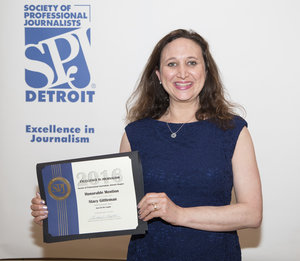A lesson in hospitality
It’s been a while since I’ve had the time to write a blog post, perhaps because I’ve been a little pre-occupied. Hosting a Bar Mitzvah that includes many out of town guests becomes a four-day affair. My column, teaching and profile pieces also kept me spinning these last few weeks. So instead of my rantings, I’ll offer my son’s Bar Mitzvah speech (otherwise known as a d’var Torah – words of Torah) for this post. I am thankful that he took direction from me during the writing process. After all, what are writing/blogging moms for?
Shabbat shalom,
It has been an honor reading from the torah today. Actually, I was kind of lucky
that my parasha is Vayera. Unlike other parts in the Torah that deal with leprosy, animal sacrifices, or the appropriate punishment for stealing an ox, Vayera offers a classic narrative of stories we all know: the destruction of Sodom and Gomorrah, Abraham casting his handmaiden Hagar and their Child Ishmael into the wilderness; and finally the long-awaited birth of Isaac to Abraham and Sarah after they showed hospitality to three visiting angels.
If anything, there was too much to write about in my parasha. But I would like to
focus on two central themes: bargaining with Gd and the mitzvah of hachnasat orchim, or hospitality. These themes were repeatedly contrasted in this morning’s reading. Let’s start
withSodom and Gomorrah.
Gd calls out to Abraham on the news that He is about to destroy Sodom and Gomorrah. This
is one of several instances where Gd calls to Abraham, who then says: Heneini –
here I am. The inhabitants of these two cities are said to be so evil that a kind act such as hospitality to strangers is decreed a crime. The rabbis capture just how bad
the Sodomites were with this Midrash: The Sodomites refused to expend any of their
lavish wealth on strangers. In fact, Sodom provided only one bed for strangers;
if an unlucky traveler was too short to fit, he was stretched until he could;
if another was too tall, his legs were chopped off.
Even so, when informed of the news of the impending destruction, Abraham shows
courage and actually bargains with Gd: Finally, Abraham agreed with Gd about
the destruction when not even 10 good people could be found. Gd was pleased that Abraham bargained for the sake of his fellow human beings, even though Gd knew there were not enough good people to save Sodom andGomorrah.
This part of the parsha taught me that one should work very hard to try finding the
good in any instance or that one can find the good in any person.
But this d’var Torah is not about the evil in the world, it’s about people doing
good for others. The main message I learned from Vayera that I can apply
throughout my life is the mitzvah of hospitality. The Talmud states that
hospitality is such a great mitzvah that it is more important to show
hospitality than it is to attend classes of study or to greet Gd in prayer.
In one point in today’s Torah reading, we find Abraham sick and old, yet he is
still waiting in front of his tent to receive guests. In the distance, he sees three strangers
walking towards him. Suddenly, he moves into action. The text in the Torah
demonstrates how animated he became for the sake of greeting guests. He BOWS to
his guests, he RUNS into his house and SHOUTS to his wife Sarah,
“maheri shalosh s’eem kamah solet lushi, v’asi oogot.”
This translates into something along the lines of “Quick woman! We have guests, make
some cake!”
The words “run” and “quick” are repeated over and over as Abraham hurries to attend
to the strangers’ every need. He personally gets the whole family into the
catering business as they lavish their guests with an abundant feast.
This teaches me that although Abraham is weak and advanced in age, when he sees the
weary travelers, he suddenly finds energy in the mitzvah of welcoming guests
into his tent. Greeting guests to Abraham is more important than his own
comfort.
In another reference to hospitality, Lot, who is
living in the town of Sodom, is also greeted by angels. He also makes haste in preparing their meal.
However, he does not involve his family, and where Abraham serves his guests at
the doorway of his tent – in view of the public eye – Lot’s
hospitality is done secretly. Still, the Sodomites show their true nature and
look to punishingLot for his good deed.
Perhaps the reason why Abraham enjoyed having so many guests is because of the things
he learned from them.
Pirkei Avot asks: “Who is wise? He who learns from many is wise.”
As long as I can remember, my family participates in a chavurah every other Friday
night for Erev Shabbat. Everyone in the chavurah takes turn hosting the other
families, and we all pitch in bringing different parts of the meal. When it is
my family’s turn to host, for us kids, it’s not easy. It’s the end of a long
school week and we are tired. But, we are expected to help get the house ready
for our guests. There’s no time to sit around and watch “That 70’s Show.” We
have to rid the kitchen of any papers or any evidence that three busy children
live in the house. After sterilizing the kitchen, we have to find white
tablecloths, sort the silverware, and set up the glasses for Kiddush. But after
our guests arrive, the beautiful singing of Kabbalat Shabbat, plus the usual
ice cream for dessert makes all that work totally worth it.
Inviting guests into your home makes them feel special and more connected to the
community. In turn, perhaps the hospitality they were shown will inspire them
to extend hospitality to someone else.
Sometimes, guests can be close friends and family. Other times, guests can be complete
strangers.
I’ve learned a lot about Israelis by having teachers from Modi’in stay with us. This past Sukkot, we
opened our sukkah not only to our guest Inbar, but the other teachers who were
visiting plus their hosts. The house was full of energy and about 30 people had
a chance to eat in our Sukkah before the rain started.
Another form of hospitality is letting someone into a group. A good example of this is when you
are in school and your math teacher asks you to split up into groups of two to
work on a project. Kids, don’t wait for that fellow student that didn’t get put in a group to go through the humiliation of sitting alone in class. Go over and invite him or her into your group.
Another example of being shown hospitality by being included in a group I learned from my mitzvah
project. Over the past few months, I helped train dogs for Guiding Eyes for the Blind. The tricky thing is, I don’t have a dog.
YET!
But one puppy raiser named
Becky showed me hospitality by letting me “borrow” her dog Ben during the
class. If it wasn’t for her, I would not have gotten anything out of my mitzvah
project. She and Ben wouldn’t have progressed at a more rapid pace if I wasn’t tagging
along saying things like like “how do you hold the leash?” or “Ooops, I dropped
all the treats on the floor again.”
Guiding Eyes is an all-volunteer run foundation for people who take dogs into their homes, train
them and prepare the dogs for one day serving as a companion to a blind or
disabled person. It has been very inspiring to see how much Ben has improved in paying attention in the weeks I have worked with him.
Now that I am a Bar Mitzvah, I am honored that the entire Jewish
community is showing hospitality to me, welcoming me in as a fully participating Jewish adult. Now, if I’m home, or in Hebrew school one afternoon and there is no minyan for mincha/ma’ariv, I can be called upon to help. This will really make me feel important and part of the community.
Vayera concludes with the Akedah, the binding of Isaac. It’s hard to argue that Abraham was being
very hospitable when he obeyed Gd’s command and brought his son Isaac to Mount
Moriah to be sacrificed.
I find that strange, this is a man who bargains and with Gd to save two cities full of strangers who
are really bad people but doesn’t open his mouth in defense of his son.
I think about my own life, and situations that might happen that might somehow
relate to this, for instance: if my father ever asks me to hike up a mountain
for no apparent reason, I might buy it, but that will change when I notice a saddled donkey in the driveway.
3 responses to “A lesson in hospitality”
Trackbacks / Pingbacks
- - November 16, 2011





Stacy – wow. You should be one proud Mama! That is an amazing and inspiring D’var Torah. Yasher Koach to Nathan.
LikeLike
Reblogged this on Transplantednorth's Blog and commented:
this weekend marks the one year anniversary of my son’s Bar Mitzvah, hooray. I think about life’s small blessings. Thank goodness we celebrated this milestone last year and not this year, what with an impending relocation and the destruction back home in NYC after Sandy. Note to any bar/bat mitzvah kid scrambling for a last minute speech: first and foremost, the Torah teaches you ethics. If you are looking to lift a speech off the Internet on the day you are taking responsiblitiy for your own actions, think twice. I’ve seen a lot of searches on my blog stats for “bar mitzvah speech vayera” So, you are now responsible for your own actions, including those of plagiarism
LikeLike